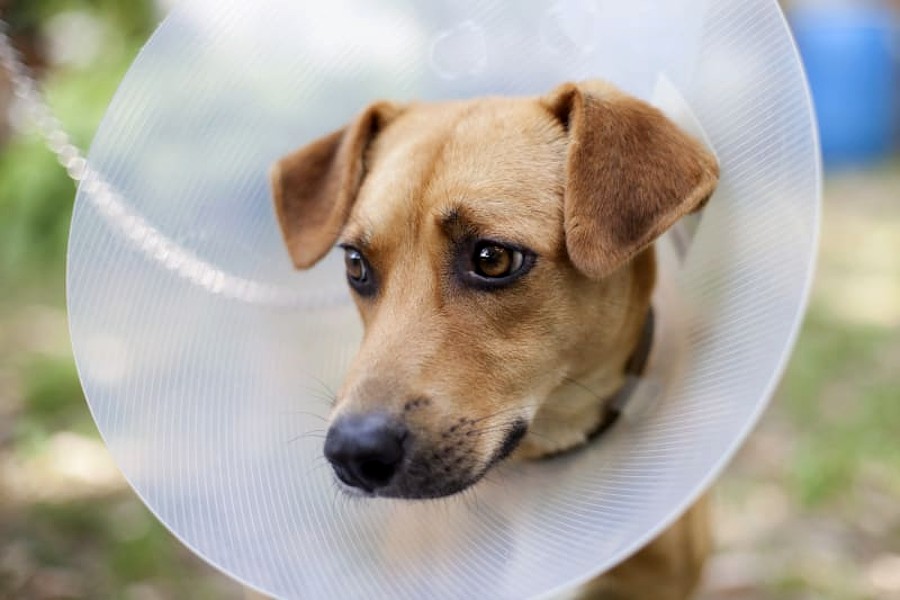
The health of our beloved pets is of the utmost importance. They are members of our family, and we want to make sure they have long and happy lives.
Taking proactive steps to ensure a healthy pet can help ward off future illnesses and injuries and keep our furry friends around for as long as possible.
Of course, regular visits to the vet are also critical to a healthy pet. Your vet is your partner in ensuring your pet’s well-being, and they can help you with preventative care, vaccinations, and more. Let’s take a look at some of the things your veterinarian can do to keep your pet healthy.
Screening For Illnesses
At a routine checkup, veterinarians typically screen for a variety of illnesses that could potentially plague your pet. Among the more common illnesses that vets screen for are heartworm, fleas and ticks, internal parasites, and any signs of infection. Heartworm is a particularly dangerous condition and can cause severe heart problems in your pet. This is why routine heartworm testing is so important. During the exam, your vet will also check for signs of fleas and ticks, which can cause skin irritation and can be dangerous to your pet’s health.
Internal parasites such as roundworms, hookworms, and tapeworms can also be very dangerous for your pet. These parasites can cause severe intestinal distress and can even be fatal if left untreated. Vets will typically check for signs of these parasites during a routine checkup, and they will also perform a fecal exam to check for any eggs or larvae that may be present.
Your vet will also check for signs of infection during a routine checkup. Infections can be caused by bacteria, viruses, fungi, or parasites, and they can be very dangerous if left untreated. Your vet will check your pet’s eyes, ears, nose, and skin for any signs of infection.
Basic Preventive Medicine
Your veterinarian is the best person to recommend a diet for your pet. Your vet can also recommend which medications are most appropriate for your pet based on their age, breed, and overall health. Your vet can also suggest that your pet get their teeth cleaned and possibly have any other routine preventative care done.
Administering Vaccinations
Your veterinarian is the best person to give vaccinations to your pet. Your vet will give vaccinations according to your pet’s vaccination schedule. Your vet will also be able to tell you if your pet is due for a vaccination or if they need another one in the near future.
Treat And Dress Wounds
To start, the wound is cleaned to remove any dirt, germs, or debris. The veterinarian then applies topical antibiotics to reduce the risk of infection and may use sutures or staples to close the wound and promote healing. Once the wound is closed, a bandage or wrap is then applied to protect it from further damage and keep it clean.
They also use a variety of ointments or creams to promote healing and reduce pain. They may also prescribe pain medications or antibiotics to help fight off infection and reduce inflammation. In some cases, they may also use laser therapy to help the wound heal more quickly.
Veterinarians are highly trained professionals who have the expertise to safely and effectively treat and dress your pet’s wounds. They understand the importance of keeping wounds clean, reducing inflammation, and promoting healing.
Perform X-Rays
Your vet is the best person to give an x-ray of your pet’s body. Your vet will be able to tell what the bones are doing and if there are any abnormalities that need to be treated. If there are problems with the bones in your pet’s body, your vet can try different treatments or surgeries to fix them.
Set Broken Bones
The process for setting broken bones in pets is similar to that used for humans, but with some modifications. After taking an X-ray to assess the fracture, the veterinarian will put the broken bone in place, typically using a combination of casts, splints, and pins to hold it in place while it heals. The veterinarian may also prescribe pain medications and antibiotics to help reduce the risk of infection and promote healing.
Once the bone is in place, the veterinarian will check the animal’s progress periodically to make sure that the bone is healing properly. Depending on the location and severity of the fracture, the veterinarian may recommend physical therapy or other treatments to help the animal regain full mobility.
Vets understand the importance of proper immobilization and the role that pain medications and antibiotics play in promoting healing.
Performing Surgeries
Before any surgery is performed, the veterinarian will perform a thorough physical exam and take X-rays of the pet to assess its health and determine the best course of action. The veterinarian will go over the risks and benefits of the procedure with you and answer any questions you may have.
Once the veterinarian has determined the best course of action, they will prepare the pet for the procedure. This may include pre-surgical tests such as blood work or an electrocardiogram, as well as administering any necessary medications. The veterinarian will also explain the post-operative care instructions to you, such as medications and follow-up visits.
During the procedure, the veterinarian will monitor the pet’s vital signs and adjust the anesthesia as needed. They will also monitor the pet’s progress during the surgery and take any necessary steps to ensure the pet’s safety.
After the surgery, the veterinarian will assess the pet’s recovery and provide any necessary post-operative care. They will also provide instructions on how to care for the pet at home and follow-up visits.
There are times when you may need to schedule a larger surgery in another city or out of state because your veterinary office is not licensed to perform the surgery in your state. For example, if you’re a Franklin resident and your pet has a tumor that needs to be removed, you may need to travel to a veterinary clinic in Atlanta or Nashville to find a vet that is specifically qualified to perform this type of surgery.
By following the advice of your veterinarian, you can help keep your pet healthy and safe.
Become a Harlem Insider!
By submitting this form, you are consenting to receive marketing emails from: Harlem World Magazine, 2521 1/2 west 42nd street, Los Angeles, CA, 90008, https://www.harlemworldmagazine.com. You can revoke your consent to receive emails at any time by using the SafeUnsubscribe® link, found at the bottom of every email. Emails are serviced by Constant Contact








